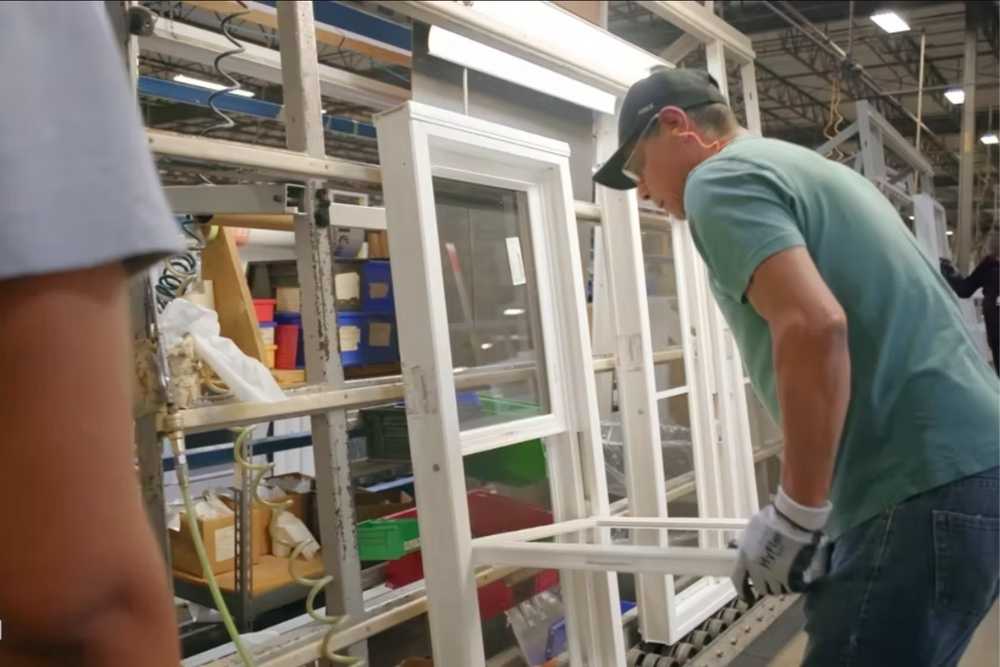If you’re a homeowner in Florida, it’s important to have quality hurricane impact windows installed. But what does the hurricane impact window rating mean when it comes to these windows? And how do you know if you’ve selected ones that can provide sufficient protection?
Today we are going to explain how impact windows are rated. From design pressure to large missile impact resistance and performance grade, there are multiple factors to consider when scoring the quality of the glass.

How Are Hurricane Impact Windows Unique?
Compared to traditional glass windows, hurricane impact windows have a number of distinct differences, including:
Vinyl or Aluminum Frame
Impact windows typically have a vinyl or aluminum frame which is specially designed to withstand strong winds and flying debris with greater resistance to rust or breakage.
Tempered Exterior Glass
The exterior glass of an impact window is tempered, meaning it’s been heat-treated to strengthen it and increase its resistance to breakage.
Durable Interior Glass
The interior pane of an impact window is often made from laminated glass. This type of glass is formed by bonding two or more pieces of glass together with a tough, plastic interlayer. The layer helps keep the panes together if they ever shatter, making it less likely that anyone inside the home will be injured by flying shards of glass.
Superior Insulation
The space between the interior and exterior panes is filled with either argon gas or air. This allows for improved insulation, leading to greater energy efficiency.
Large Missile Impact Testing
In order to assess the impact resistance of a window, it must be subjected to a simulated hurricane environment. The most common way to do this is by launching a large missile (i.e., steel ball) at a pane of hurricane-rated impact glass. This test mimics the act of debris being tossed toward the window during a storm.
The size and weight of the missile are important factors to consider when rating impact windows. The larger and heavier the missile, the more force it will exert on the window upon contact. In order to achieve a high rating, the window must be able to withstand this force without breaking or causing significant damage.
Design Pressure
Also known as “DP”, the design pressure rating concerns the window’s ability to resist water, air infiltration, and structural load stresses. A higher DP rating indicates that it is better suited for withstanding more intense hurricane forces. For example, a DP rating of 60 will indicate greater durability against faster winds compared to one at 35.
However, it should be noted that a DP rating is usually a combination of scores for water resistance, air infiltration resistance, and structural load tolerance. This could indicate that the glass excels in one or more of these criteria over others.
Performance Grade
The performance grade or “PG” rating refers to a window’s ability to resist wind pressures in a hurricane setting. In most cases, these scores are rated on a scale between 15 and 70 which aligns with its PSF rating.
Unlike traditional glass, a typical hurricane impact window will feature a higher PG rating. It will be able to endure through high winds and large debris more effectively while also keeping out water and air.
Visible Transmittance
Impact windows do not have to be completely clear. In fact, many homeowners choose to install impact glass that has a low visible transmittance (VT) rating. This means that the window will allow less light and visibility into the home, making it harder for burglars to see what’s inside and allowing for greater privacy in general.
Solar Heat Gain Coefficient
Window solar heat gain coefficients (SHGC) measure how much energy the window allows in from the sun and then transfers inside. Impact windows with a low SHGC rating will allow less heat to enter your home, keeping it cooler during hot weather. This can prove beneficial to Florida homeowners that may wish to maintain a cooler indoor environment.
Other Hurricane Impact Window Rating Factors
Beyond the criteria listed above, some other additional rating factors that a hurricane window might be scored against also include, but is not limited to:
- Air leakage resistance – The window’s ability to prevent air from escaping
- Condensation resistance – The window’s resistance to condensation forming on its surface
- R-value – How effectively a window can insulate your home’s interior
- U-factor – A window’s ability to conduct the flow of heat from sources other than sunlight
Get Florida’s Leading Hurricane Impact Windows Today
At Paradise Exteriors, our skilled team stands as the proud exclusive impact window installers of Paradise Platinum hurricane impact windows. In addition to providing protection against hurricanes, these windows also offer superior resistance to UV light, greater energy efficiency, reduced noise pollution and improved home security. In fact, they are the only windows endorsed by the National Crime Prevention Council!
To learn more about installing hurricane impact windows at your home, contact us today for a free estimate.



